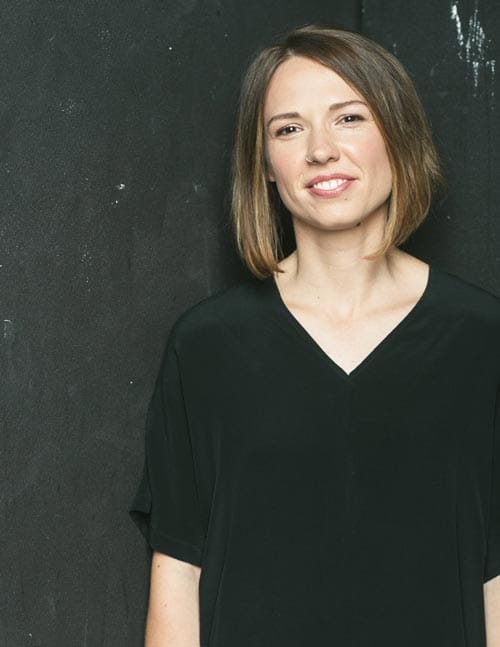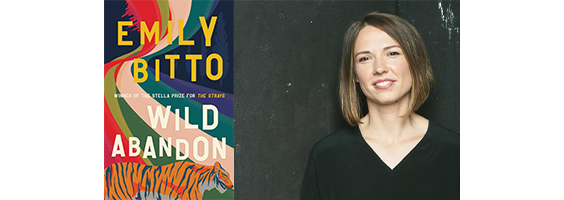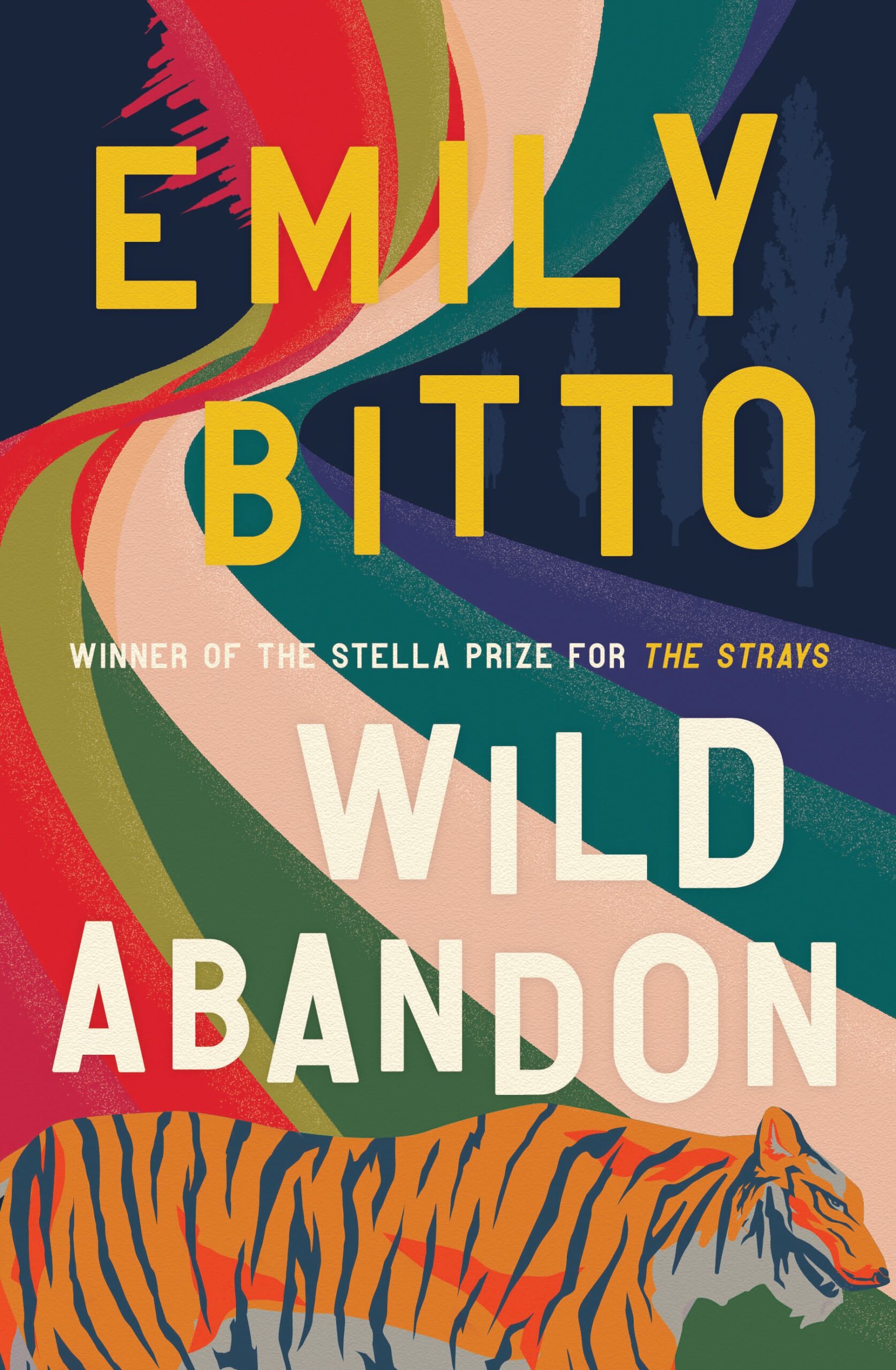
Emily Bitto is a Melbourne-based writer of fiction, poetry and non-fiction. Her debut novel, ‘The Strays’, was the winner of the 2015 Stella Prize. Her fiction, poetry and non-fiction has appeared in various publications, and she has been teaching creative writing for over a decade. Her second novel ‘Wild Abandon’ was published to acclaim in September 2021.
Writers Victoria intern Amy Bullow spoke to Emily about ‘Wild Abandon’ – the genesis of the book’s plot, her real-life inspirations, the research done to bring the book to life, and the influence of politics and culture on her writing.
What sparked the initial idea for Wild Abandon?
Without giving too much away, the initial inspiration for the novel was a news story I read in 2011, about a man in Ohio who owned a private zoo, including absolutely astounding numbers of full-gown lions and tigers. This was pre-Tiger King, and the world of ‘exotics’ ownership was completely new to me, and seemed utterly surreal. There was something in this story (which was a really tragic tale) that stuck with me, and I knew I needed to write about it in some way. Obviously the novel developed a lot and in all sorts of different directions from that news story, but that was the initial spark.
You also have an extensive history in the hospitality industry and are a restaurant owner yourself. Do you believe Will, your protagonist, was influenced by the wide range of customers you must see in Melbourne’s ‘hospo’ scene?
He’s probably more influenced by the young men I worked with behind the bar than the customers, to be honest, but again only tangentially, and he’s definitely not based on anyone in particular. There’s also a bit of myself in him, in that I spent my teen years in a country town, and felt something of his insecurity and cultural cringe when I first moved back to Melbourne. And then he’s also influenced by the many protagonists of other ‘masculine quest’ stories, which was a trope I became very interested in while writing the book.
The relationship between Will and Wayne is key in the novel: Will, the life of the party; and Wayne, an unstable war veteran. What made you want to compare these two very different walks of life?
Again, in relation to the idea of the masculine quest or ‘initiatory journey,’ I started thinking a lot about the extreme differences between, and impacts of, travel vs. war as early formative experiences. Wayne is a Vietnam war veteran, and was younger than Will is when he went through that experience. By contrast, Will’s desire for ‘experience’ and ‘culture’ via travel seems incredibly privileged and easy. And yet, I think there’s something they have in common, in that they are both seen, in our culture, as ways of being ‘initiated’ into experience; of ‘becoming a man.’ I wanted to explore those two very different ‘journeys’, hopefully with empathy, as well as with a critical, writerly eye.
You conducted an extensive amount of research for Wild Abandon, and even travelled to the States. What was your biggest take away from this experience and do you have any regrets following your time overseas?
I’m so grateful that I was able to make that research trip to the US! I was fortunate enough to be awarded a Felix Meyer travel scholarship from Melbourne Uni to go there in the early stages of working on the novel. From the vantage point of this COVID-19 world, that seems incredibly lucky! I think the most important thing to emerge from that trip was a real understanding that travel is always about the fantasy of a place, rather than the ‘real thing.’ It’s impossible to gain an understanding of ‘America’ just by travelling there, as it is for any other place and culture. But that made me interested in exploring the theme of travel itself, and the ways in which we project our own desires and fantasies onto the places we visit. The two parts of the book are set in New York and Ohio, but I named both parts “America” as a way of gesturing to the fact that these are just two versions of “America” that Will experiences, and that there are potentially thousands, if not millions, of other versions of “America” that he could have also encountered. I don’t think I have any regrets, other than maybe not spending more time there. But I was running the bar at that stage, and it was hard to get away at all!
In your interview with the Guardian, you discussed how you started writing in the Obama era and ended in the Trump times, and how this contributes to ‘Wild Abandon’s’ theme of hedonism and the American dream. Did you find that our capitalistic society and the disillusionment it causes has exerted more of an influence on your writing recently than it did while you were writing The Strays?
I think contemporary culture and politics definitely exerted more of an influence on this novel than on The Strays, because The Strays was set in the past, in a very different time. I knew, after finishing The Strays, that I wanted to write a contemporary novel, because I’m constantly thinking about and trying to come to some kind of understanding of the ‘surrealness’ of the world we are currently living in. But that world definitely became even more surreal during the writing of Wild Abandon, when Trump was elected. The novel is set during the Obama era, so I didn’t have to tackle Trump in the book, fortunately, but the knowledge of what was to come, in the future of the novel’s characters, certainly cast a different light on the story as I was writing it. It already felt, during the Obama era, that the hyper-capitalist West was at some kind of Rome-before-the-fall moment of almost impossible excess and wilful blindness to reality, but it certainly got stranger and more frightening during the Trump era!
Since beginning your novel, many things have changed in the world. How did the advent of the pandemic shape the way in which you brought Wild Abandon into the world?
It’s certainly been a strange experience putting a book out into the world during lockdown. Not being able to have an in-person book launch; not being able to see the book on shelves; not being able to talk to book-sellers, who are some of the best people in the world… but at the same time, I feel lucky because by the time Wild Abandon came out, publishers had had time to adapt to the new reality, and had developed new ways of promoting books. Still, I’m certainly looking forward to getting out there and doing in-person events. Being a writer is a very solitary pursuit most of the time, and the post-publication period is really the only time when you get to meet readers and booksellers, so it’s sad to miss out on that.
And finally, did you discover any new favourite American snacks while writing this novel?
Cinnamon Toast Crunch, which is a breakfast cereal shaped like tiny pieces of sweet cinnamon toast! Diabolical for your teeth, I’m sure, but incredible nonetheless.


